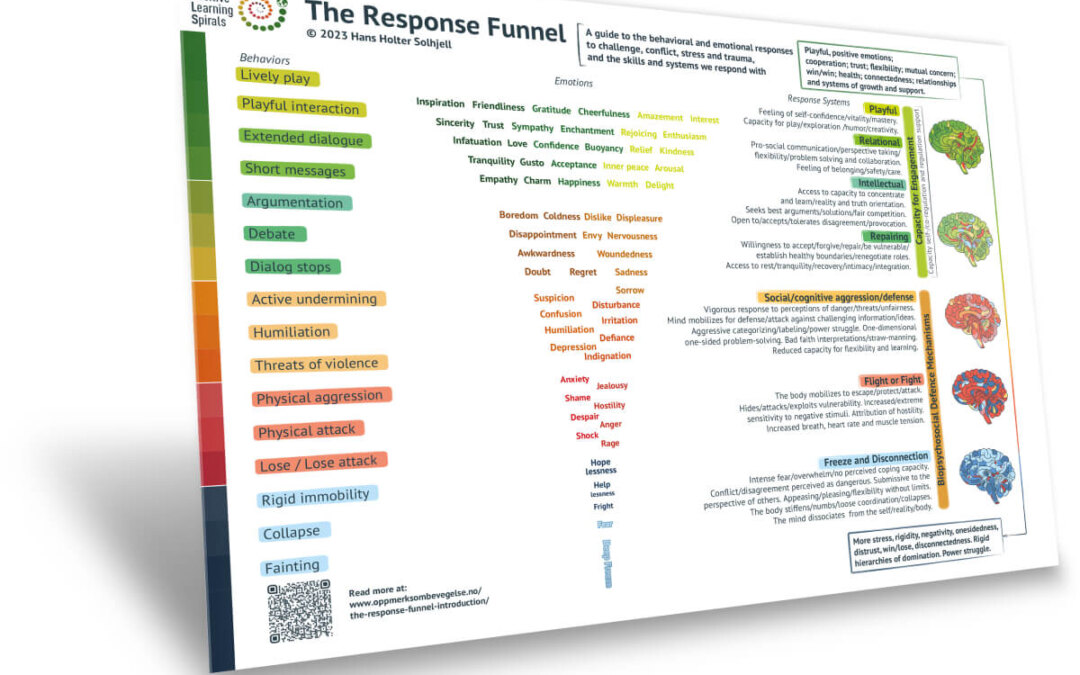
The Response Funnel Model now in new languages
The Response Funnel Model is now available in a new and updated version as well as in more languages.

The Response Funnel Model is now available in a new and updated version as well as in more languages.
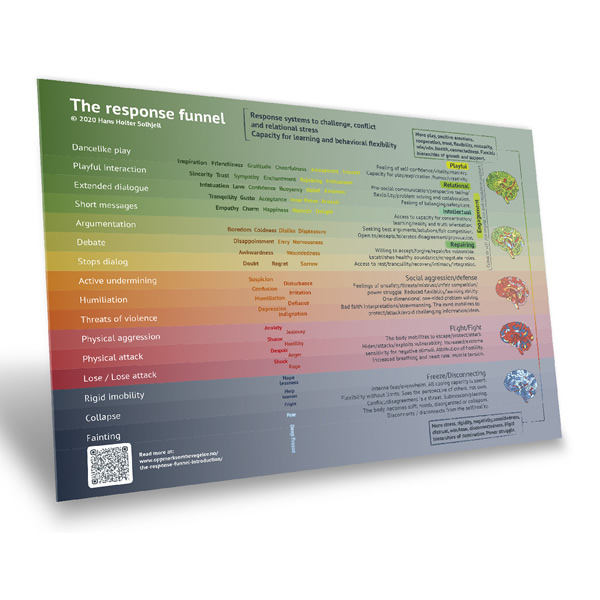
The response funnel model provides an overview of a range of ways we respond behaviorally to challenges, conflict, crisis, and stress, with a focus on both more spontaneous, positive or negative, behavior, but also and more importantly on learnable solution-oriented regulation-supportive behaviors and relational skills.
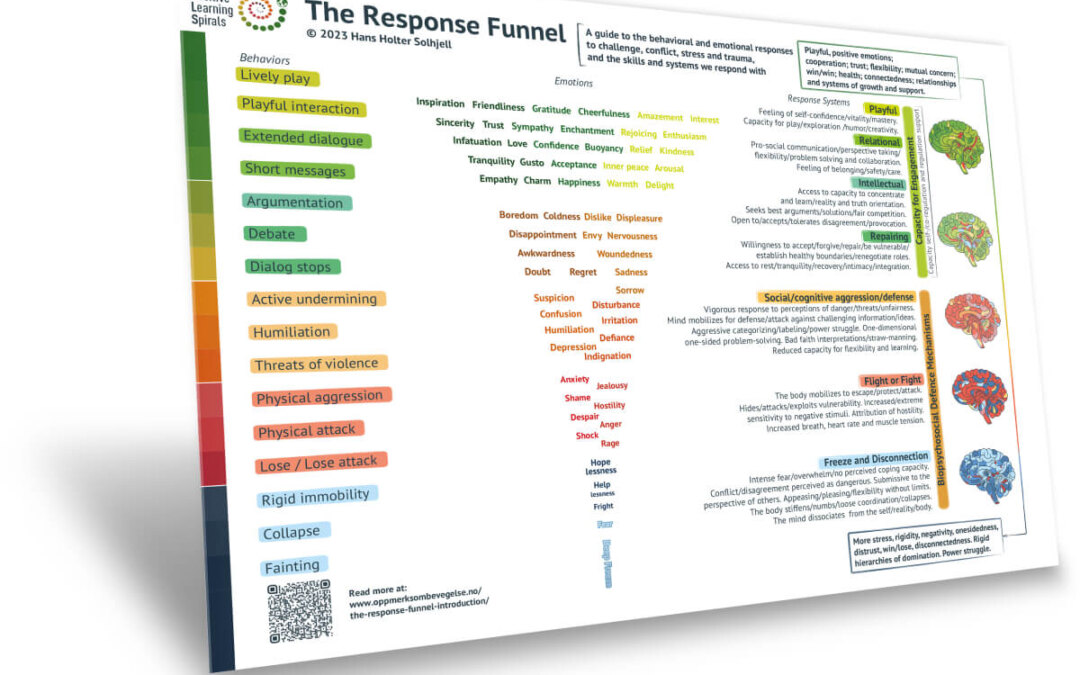
In this second article on the response funnel model, I provide an overview of the conceptual understanding the model is based on and compare it to some other related models in this field.

Over the last few years, several articles have been written about TRE in Norwegian media and some initial research has also been conducted on the use of TRE. On this page we give an overview of the articles we have found from Norway and one from Denmark with a brief summary of the experiences mentioned in the articles.
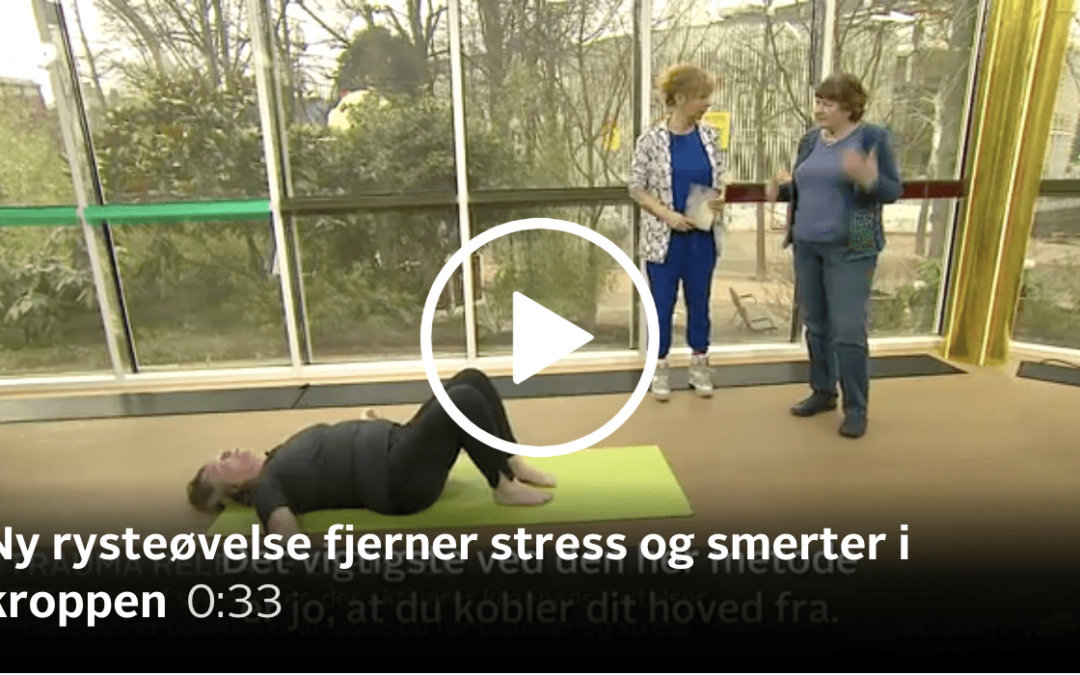
Fatigue, difficulty sleeping, spasticity, pain and even bladder problems are among the symptoms many of the participants have reported that have been reduced. Some have also experienced that they have regained some of the sense of feeling they have lost, and have been able to reduce symptom-suppressing medicine, says head of research at the Danish Sclerosis Association Lasse Skovgaard.
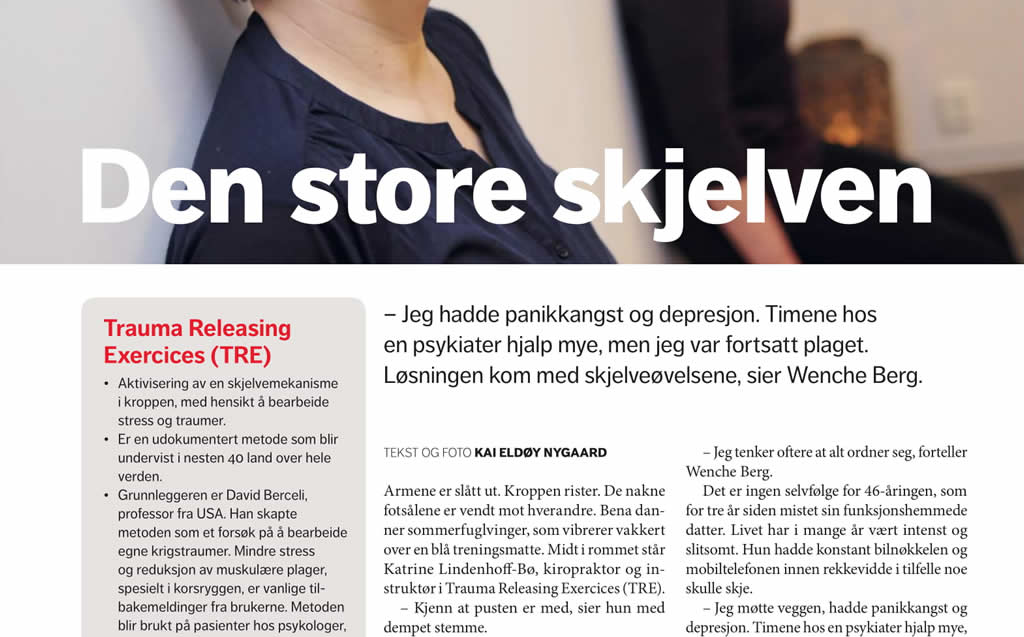
Mental Health 3/2014 had an article about TRE, and talked to the participants in a course led by chiropractor and instructor in TRE Katrine Lindenhoff-Bø.
It is a common experience among therapists who combine other methods with TRE, such as massage therapists and other body-oriented therapists, as well as conversation and cognitive therapists, that one gets more done and gets better effect from other methods after doing TRE.